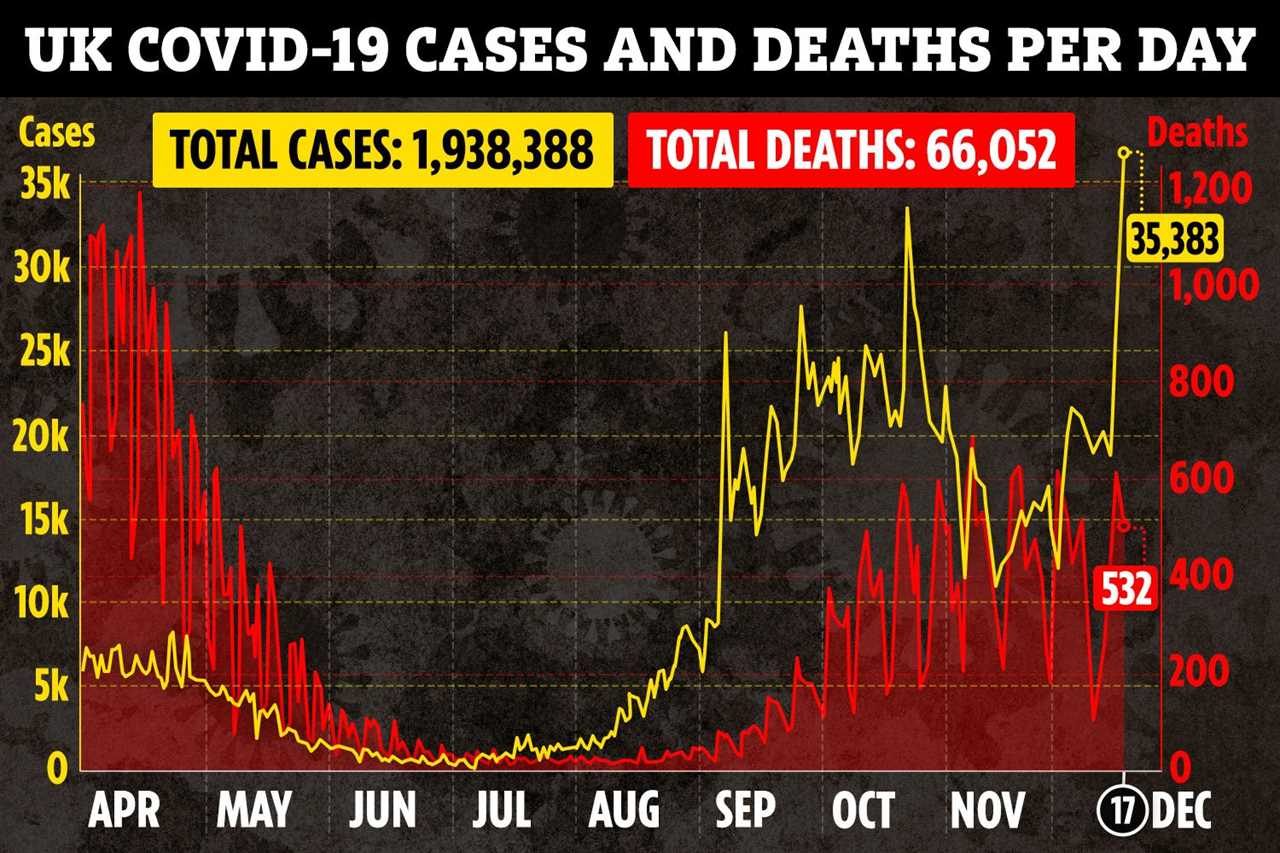THE NHS has set up special centres for thousands of people suffering with long Covid – as one in five people develop lasting symptoms after contracting the coronavirus.
Assessment centres are now taking referrals from GPs for people experiencing conditions such as anxiety, brain fog, breathlessness, depression, fatigue and other debilitating symptoms.

Patients will need to be referred by their GP who will asses their symptoms so that they can rule out other health conditions before referring patients to the long Covid centres.
There will be a total of 69 centres dotted across the country and NHS England has coughed up £10 million in funding for the network of clinics.
Sir Simon Stevens, NHS chief executive hailed the move and said the NHS was “taking action” to help those still suffering from ongoing symptoms.
Research from the Office for National Statistics (ONS) shows that one in five people with Covid-19 develop longer term symptoms and around 186,000 people suffer from problems for up to 12 weeks.
Some 11.5 per cent were still suffering fatigue after five weeks, 11.4 a cough and 10.1 per cent a headache.

A further 8.2 per cent still had no sense of taste and 7.9 per cent a loss of smell, the Office for National Statistics found.
It is the first time the official body has released data on people suffering long Covid.
The numbers, taken from the ONS national infection survey, do not include people in hospital, care homes or prisons.
Dr Amitava Banerjee, from University College London, said long-Covid is already hitting the quality of life of previously healthy people.
He added: “Knowing the prevalence of long Covid and its risk factors is essential for planning how to prevent and treat it.
“Although post-viral symptoms are common, whether after flu or other coronaviruses, the scale of this pandemic and the potential number of infected people with long Covid is unprecedented, and poses yet another Covid-19-related public health challenge.
“The observed association between multi-organ impairment and being hospitalised with Covid-19 is a cause for concern and definitely warrants more investigation.”
PRACTICAL ACTION
The new centres will bring together doctors, nurses, physiotherapists and occupational therapists to offer both physical and psychological assessments.
Ten sites are already running in London, seven in the East, eight in the Midlands and nine in the South East and South West.
There are also nine in the North West and 18 across the North East and Yorkshire.
The NHS states that 12 more sites will launch in January in Cornwall, the East Midlands, the Isle of Wight and Lancashire.
The National Institute for Clinical Excellence (NICE) has now also issued guidance at how best to rehabilitate patients with long Covid.
Sir Simon Stevens, NHS chief executive, said: “The NHS is taking practical action to help patients suffering ongoing health issues as a result of coronavirus.






